Publications
Articles, publications, books, tools and multimedia features from the U.S. Institute of Peace provide the latest news, analysis, research findings, practitioner guides and reports, all related to the conflict zones and issues that are at the center of the Institute’s work to prevent and reduce violent conflict.
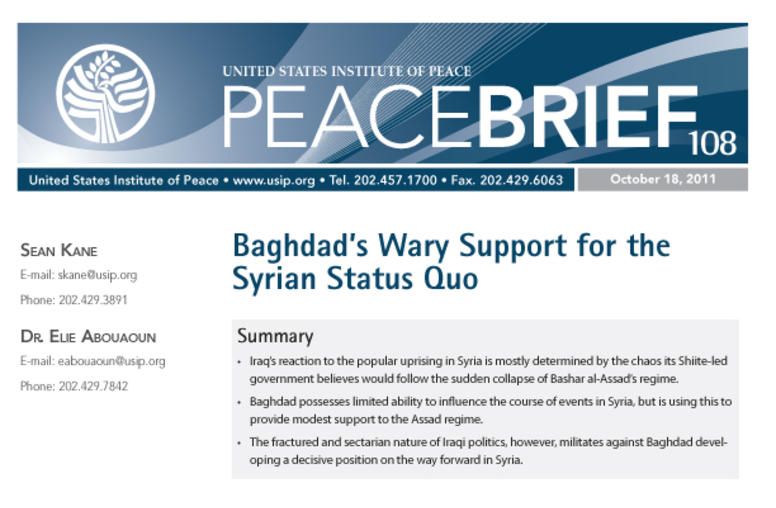
Baghdad’s Wary Support for the Syrian Status Quo
Iraq’s reaction to the popular uprising in Syria is mostly determined by the chaos its Shiite-led government believes would follow the sudden collapse of Bashar al-Assad’s regime. This Peace Brief outlines how Baghdad possesses limited ability to influence the course of events in Syria, but uses this to provide modest support to the Assad regime. This Peace Brief is part of a series examining the regional dimensions of Syria’s popular uprising.
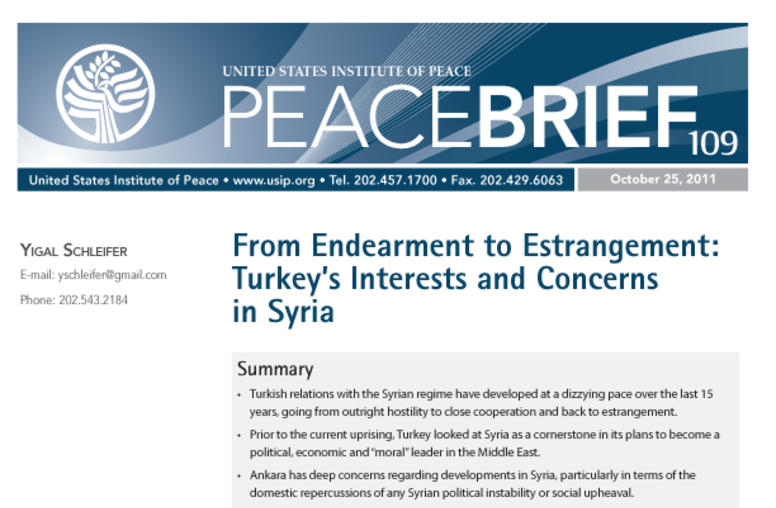
From Endearment to Estrangement: Turkey’s Interests and Concerns in Syria
This brief is part of a series examining the regional dimensions of Syria’s popular uprising. The Institute invited leading experts from the U.S. and the Middle East to identify key vectors of influence Syria’s neighbors are bringing to bear on the conflict, to forecast how the situation there will affect the regional balance of power and to examine how the opposition and the Syria regime are responding to these regional dynamics. This study on Turkey was written by Yigal Schleifer, a Washing...
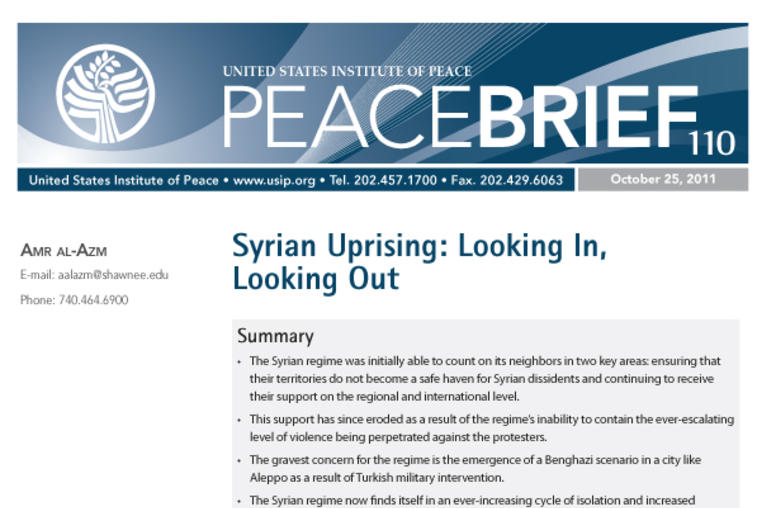
Syrian Uprising: Looking In, Looking Out
Amr al-Azm is an active member of the Syrian opposition and a professor of Middle East history and anthropology at Shawnee State University. This Peace Brief aims to examine the deteriorating relationship between the Syrian regime and its neighbors and the possible emergence of a “Benghazi scenario” involving Turkish military engagement.
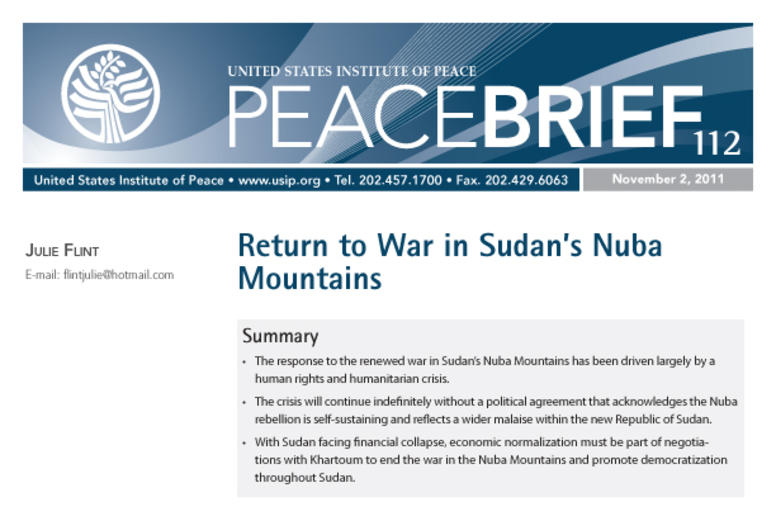
Return to War in Sudan’s Nuba Mountains
This brief looks at what is driving the fighting in Sudan’s Nuba Mountains. Journalist Julie Flint has written extensively on Sudan, reporting on the Nuba Mountains since 1992. This piece is based on her most recent visit, in September.
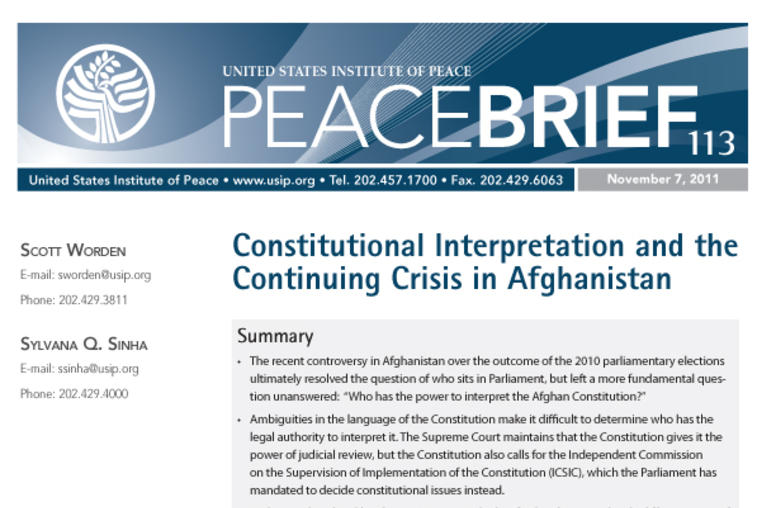
Constitutional Interpretation and the Continuing Crisis in Afghanistan
This Peace Brief reports on controversies surrounding interpretation of the 2004 Afghanistan Constitution, which have created a crisis of confidence in the rule of law that the authors argue must be resolved for national reconciliation to occur.
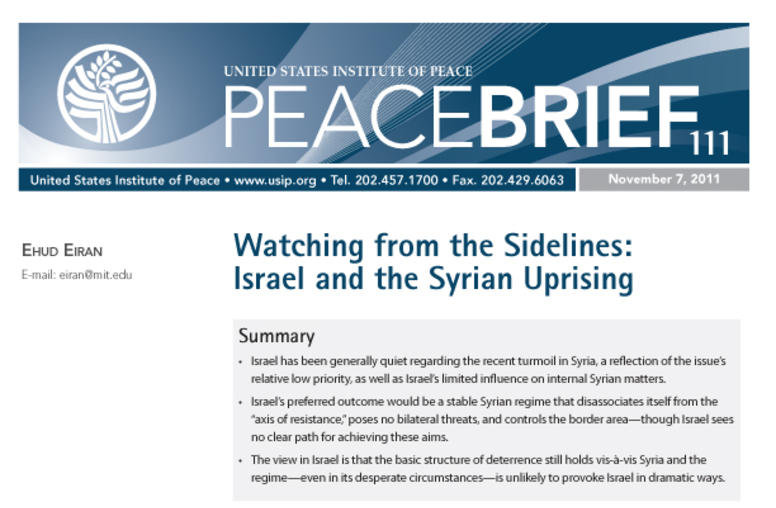
Watching from the Sidelines: Israel and the Syrian Uprising
This brief is part of a series examining the regional dimensions of Syria’s popular uprising. This brief was written by Ehud Eiran, a post-doctoral fellow at the Department of International Relations at Haifa University, Israel.
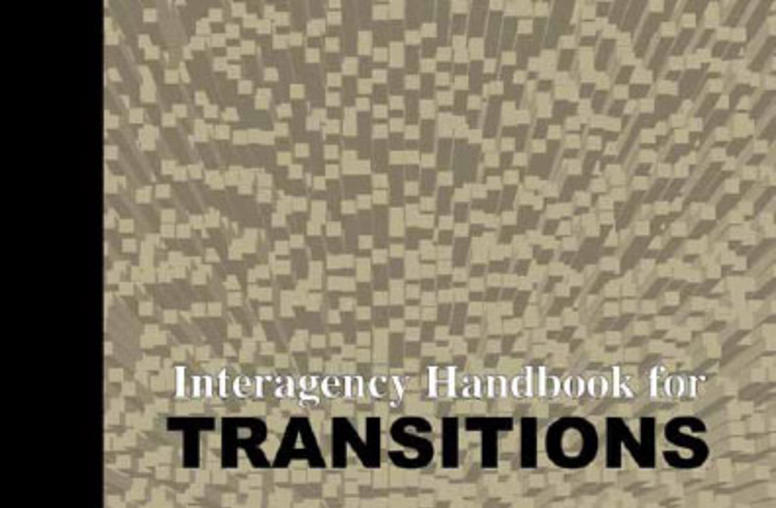
USIP and the U.S. Army Team Up For How-To Guide on Stability Operations
The United States Institute of Peace, the Simons Center for the Study of Interagency Cooperation and the U.S. Army Combined Arms Center got together to discuss challenges and lessons learned from more than a decade of stability operations.
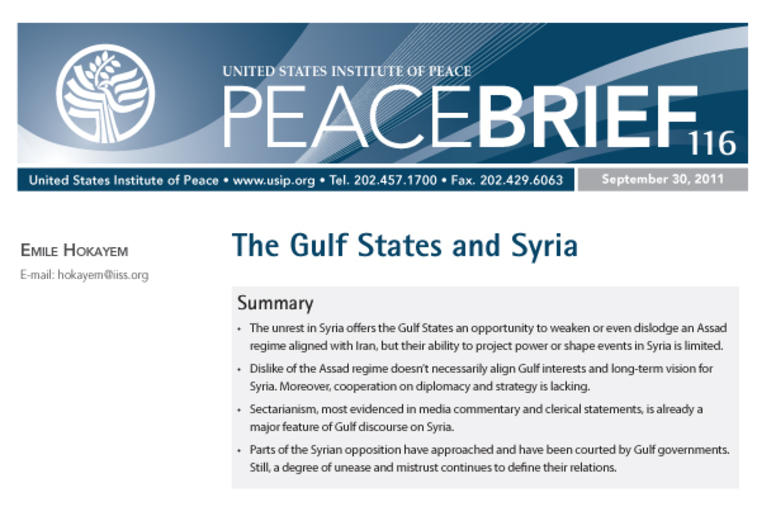
The Gulf States and Syria
The brief examines the interests, connections and dimensions of Syria's popular uprising in the Arab Gulf states. Emile Hokayem is the Senior Fellow for Regional Security at the International Institute for Strategic Studies-Middle East based out of Mamana, Bahrain.
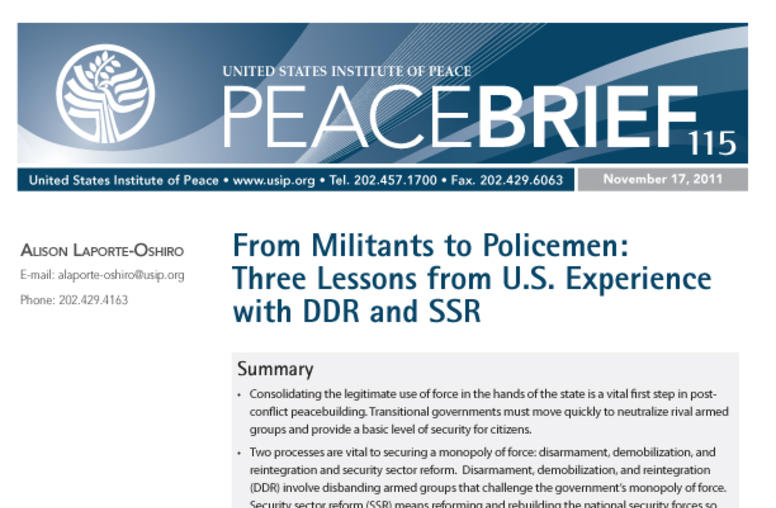
From Militants to Policemen: Three Lessons from U.S. Experience with DDR and SSR
Consolidating the legitimate use of force in the hands of the state is a vital first step in post-conflict peacebuilding. This USIP Peace Brief analyzes two processes that are vital to securing a monopoly of force: disarmament, demobilization, and reintegration (DDR) and security sector reform (SSR).
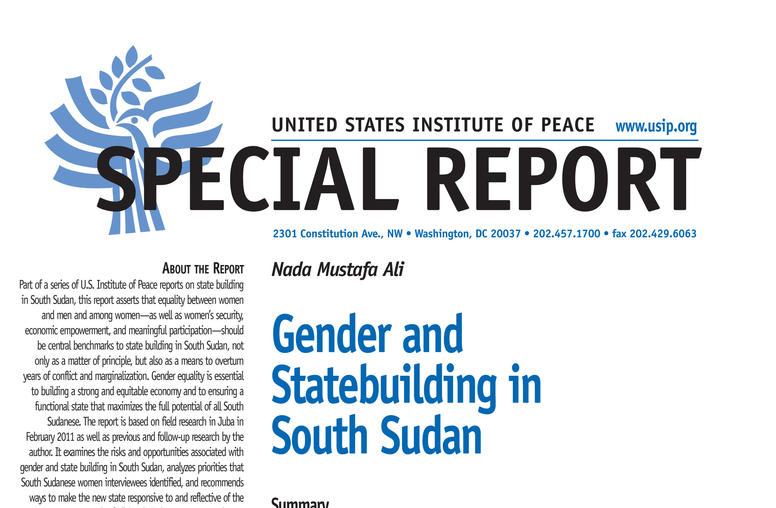
Gender and Statebuilding in South Sudan
The creation of a new state gives the women of South Sudan a rare chance to enhance their security, economic empowerment, and participation in governance.